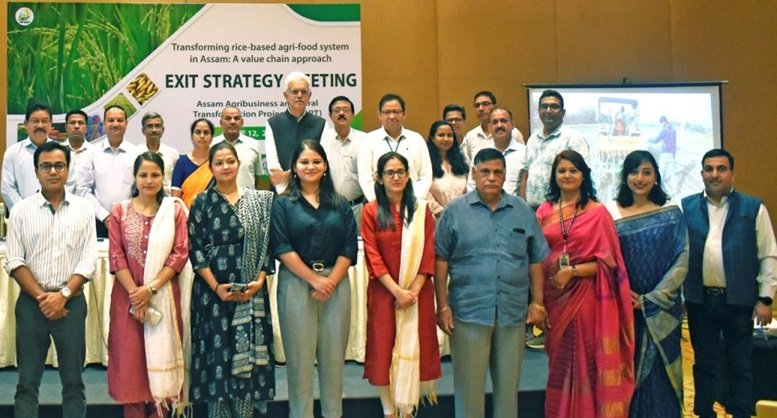Monday, 23 February 2026

It focusses on ensuring the long-term viability of advancements in rice production and value chains across the region.
With the APART’s closure approaching, IRRI and partners are starting to discuss a comprehensive exit strategy that will ensure the continuation and sustainability of the technologies and practices introduced by the project for the rice value chain in Assam.
The Assam Agribusiness and Rural Transformation Project (APART) will conclude in 2024. To ensure the continuity of its impact, the Assam Rural Infrastructure and Agricultural Services (ARIAS) Society and the International Rice Research Institute (IRRI) are collaborating on a transition plan that focuses on ensuring the long-term viability of advancements in rice production and value chains across the region.
APART, funded by the World Bank, has been instrumental in promoting climate-resilient agriculture and enhancing regional rice productivity. Key to its success has been the introduction of stress-tolerant rice varieties (STRVs) that benefited more than 400,000 farmers in Assam. These varieties, engineered to withstand floods, droughts, and other stressors, provided agricultural resilience, promoted mechanized farming practices, and improved labor productivity and efficiency.
Through APART, over 4,500 training programs were conducted for nearly 160,000 farmers, 32 per cent of whom were women. These programs empowered the learners to adopt modern agricultural technologies, such as mechanized direct seeding of rice, mechanical transplanting, harvesting through reapers and combine harvesters, and using axial flow and open drum threshers for threshing, which encouraged the project’s sustainability.
Through the project, IRRI also developed a Web-GIS Portal and the Rice-based Cropping System Knowledge Bank, offering valuable resources for informed decision-making and knowledge sharing.
Strategies to ensure the continuation of these achievements were discussed in a meeting co-organized by the ARIAS Society and IRRI. Senior officials from various government departments participated.
In her address, Aruna Rajoria, Agriculture Production Commissioner to the Government of Assam, highlighted the need for integrating government schemes to support the project’s long-term sustainability. She said, “Collaboration between the state government, Assam Agricultural University (AAU), other state agencies, and IRRI is critical to maintain the momentum of technology adoption and ensure the sustainability of activities initiated as part of this project.”
As ARIAS Society and IRRI work towards the transition, the emphasis remains on advancing agricultural transformation within Assam’s rice-based agri-food systems, highlighting the role of innovative technologies and collaborative efforts in fostering progress and development.